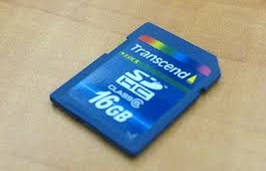Building a website requires a lot of effort and resources and once it is finished you want it to run smoothly and browsing to be uninterrupted. To many website owners disappointment, things do not always go according to plan and pages take forever to load while they find themselves stuck while trying to figure out what is the exact cause behind the issue. It is usually the combination of at least a couple of factors, rather than a single issue. Luckily, there are ways to prevent and get around such issues and we are going to discuss that here.
Reducing the Size of Images:
Resource heavy photos and images are a huge burden for any website, even when is not running smooth and pages load quickly. Resizing images so they do not eat up all the resources is a great way to improve your website functionality. There is plenty of image editing software around and you can use it to resize the images for easier viewing on the web. Such software typically already has resize template optimized for the web and it is not usually 640 × 480 pixels.
Upgrade Your Hosting Packages:
If you purchased a shared IP package, it could be that the hosting company servers are being too slow and as a result your pages are not loading fast enough, or not loading at all. It could be that you underestimated the traffic on your website and you need to upgrade your package for everything to run smoothly. Sometimes it may be even better to change the company providing the web hosting services
Caching Pages:
When you turn on caching of your pages, visitors browsers will download the backbone of your website thus making it faster to load next time they try to access it. It takes their browser lesser time to load the page because it already has the cached version of the page, and it does not need to download it from your website again. This will save you precious bandwidth and let you manage data going through your website more effectively.
Clean Up Embedded Content:
Embeds are nice and in more than one way they can make your website more appealing and more functional. Flash and other graphics are a good addition for any site. However, placing too many of them can cause your pages to load significantly slower.
Update Add-Ons:
If you leave your website for too long without updating add-ons, themes, plug-ins etc. it could affect the loading speed. Make sure you check for their updates every once in a while. Not only does it help your pages load faster, updating add-ons prevents malicious attacks on your website.
CSS Sprites:
CSS Sprites for your pages are generated to compress multiple images into one large image in order to reduce requests to your host server, thus increasing the speed of your website. For sites with a huge amount of traffic, sprites can radically improve its performance. They typically include header, footer, sidebar, background and static ads icons or photos.



